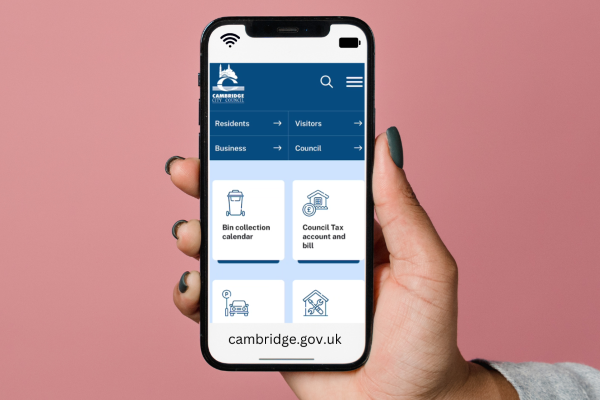A new social impact investment fund to address social challenges and inequality in Greater Cambridge has secured £200,000 seed-funding from Cambridge City Council.
The decision to award the seed-funding follows on from extensive research and feasibility work – as reported in December 2022 [link no longer active] – which showed that Cambridge could benefit from millions of pounds of ‘place-based social impact investment’.
The idea of the Fund – which has an initial investment aim of £10 million – is to build an innovative approach to tackle inequality in Greater Cambridge, especially around education, social mobility, health and life expectancy and homelessness. Investors will be able to contribute by donating or investing money with the Fund, which will enable local charities, social enterprises and community initiatives to develop, test, and scale meaningful and measurable solutions to these challenges.
The £200,000 seed-funding will enable the Greater Cambridge Impact Fund to be formally established, including recruitment, start-up costs such as creating legal and governance arrangements, and initial fund-raising work.
The Council meeting on 20 July where the seed-funding was approved also agreed 'in principle' a contribution of £800,000 to the Fund once it is established, subject to progress made to secure funding commitments of £5 million from other parties.
A Development Board comprising local stakeholders and experts in innovation, social investment and social enterprise has been established to guide the project as it transitions towards a formal constitution in the coming months.
Cllr Simon Smith, Executive Councillor for Finance and Resources at Cambridge City Council, said: “Councillors agreed unanimously to award the initial £200,000 and to pledge a further £800,000, subject to progress being made with securing funding commitment from third parties, because the Fund offers such a positive and innovative way to support our city’s fight for equality. We are committed to creating one Cambridge which is fair for all, and the social impact investment route will enable partners to work to address the root causes of inequality, to find solutions that really work, and then scale them to benefit as many people as possible.”
Chris Jenkin, Greater Cambridge Impact Fund Development Board Member and Chair of It Takes a City Community Land Trust, said: “Through my role at It Takes a City we have already seen success with a social impact investment funding model, supporting our plan to install small groups of modular homes in Cambridge specifically for homeless people, giving them not only somewhere to live, but an address and a community. Project setup costs can be a few hundred thousand pounds, paid for thanks to funding from donors, charities and social investors, along with pro-bono and discounted work to support the project.
“Once the modular homes are installed and initial setup and infrastructure costs are repaid, the ongoing rental income from the pods can then be used to contribute to future sites being established with another handful of pods. I’m hugely excited about the potential of the Greater Cambridge Impact Fund to galvanise similar projects to this, but on an even greater scale for people in Cambridge.”
Antony Ross OBE, Chair of the Greater Cambridge Impact Fund Development Board, said: “We know that while Greater Cambridge has a thriving economy, it also remains one of the most unequal cities in the UK with stark inequality between the most affluent and the most deprived communities in Cambridge. Social Impact Investment uses investment to make a difference. It provides social investors, philanthropic individuals and organisations who are doing well in our growing economy with a mechanism to invest in change and be part of the solution to the challenges we face.
“It is too early on in the creation of the Fund to say exactly what projects could be funded, but we expect to consider projects that help people to gain skills and prepare for employment, that promote community resilience, that support biodiversity and tackle environmental harm, and address the issues of housing costs and homelessness. But this list is by no means exhaustive, and we will be working with social enterprises, charities and local communities to find the most innovative and impactful projects that will create real positive change.”
Find out more about the Greater Cambridge Impact Fund: www.greatercambridgeimpact.com



